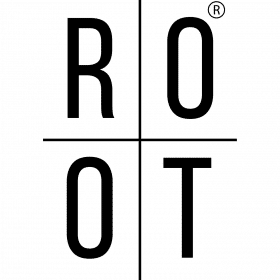Articles
How Your Genetic Profile Affects CBD and THC Metabolism for Optimal Health
UNLOCKING THE POWER OF GENETICS: HOW YOUR PERSONAL GENETIC PROFILE AFFECTS CBD AND THC METABOLISM
The use of CBD (cannabidiol) and THC (tetrahydrocannabinol) for health and wellness has gained significant attention in recent years. However, one key factor often overlooked is the way individuals metabolize these substances, which is heavily influenced by their genetic makeup. Understanding your genetic profile can dramatically enhance your ability to make informed, personalized decisions regarding the use of CBD and THC in daily life. With advancements in genetic testing, tools like the DrC Gx panel offer invaluable insight into how your body reacts to these compounds, ensuring that you can maximize their benefits while minimizing potential risks.
THE ROLE OF GENETICS IN CBD AND THC METABOLISM
When consuming CBD or THC, the body’s endocannabinoid system (ECS) interacts with these cannabinoids, influencing various physiological processes such as pain relief, mood regulation, and sleep. However, the way your body metabolizes these substances can differ dramatically based on your genetic profile.
Certain genes are responsible for encoding enzymes that metabolize cannabinoids, such as CYP2C9, CYP2C19, and CYP3A4, which are crucial in processing THC and CBD. For instance, variations in these genes can result in slower or faster metabolism of THC, influencing the intensity and duration of its psychoactive effects.
According to research by Aymé et al. (2017), polymorphisms in CYP2C9 are linked to a slower breakdown of THC, which can result in prolonged effects and an increased risk of adverse reactions like paranoia or anxiety. Similarly, CYP3A4 is involved in metabolizing both CBD and THC, and genetic variations in this enzyme can alter their efficacy and safety profile (Brown et al., 2019).
PERSONALIZED GENETIC TESTING: THE DRC GX PANEL
With so much at stake, it’s essential to take a personalized approach to cannabinoid use. The DrC Gx panel offers a revolutionary way to understand your genetic predispositions related to the metabolism of CBD and THC. This genetic test examines critical genes like CYP2C9, CYP2C19, and CYP3A4, providing a detailed profile that helps you make informed decisions about your cannabinoid use.
KEY BENEFITS OF THE DRC GX PANEL:
- Tailored Cannabinoid Dosing: The DrC Gx panel helps identify whether you are a slow, normal, or fast metabolizer of CBD and THC, guiding you to optimal dosing strategies that minimize side effects while enhancing therapeutic benefits.
- Enhanced Safety: With a deeper understanding of your genetic profile, you can avoid potential adverse reactions, particularly with THC, where slow metabolism can lead to heightened anxiety or paranoia.
- Improved Efficacy: By knowing how your body processes cannabinoids, you can adjust your intake to ensure you’re getting the most effective results for issues like pain, anxiety, or insomnia.
- Informed Product Choices: Your genetic profile can help you choose products with the right cannabinoid ratios (e.g., CBD-dominant vs. THC-dominant), ensuring that the product aligns with your unique biology.
HOW GENETIC INSIGHTS CAN INFORM DAILY CBD AND THC USE
With the data from the DrC Gx panel, you can make more informed decisions about how and when to use CBD or THC in your daily routine. For example, if you are a slow metabolizer of THC, you may choose to use products with lower THC concentrations or opt for CBD-rich strains to avoid undesirable side effects. On the other hand, fast metabolizers might require higher doses to experience the therapeutic benefits of these cannabinoids.
Additionally, genetic insights can inform when you use these substances. If your genetic profile indicates a faster breakdown of CBD, you may benefit from more frequent, smaller doses throughout the day to maintain its calming and anti-inflammatory effects.
CLINICAL RESEARCH SUPPORTING GENETIC INFLUENCE ON CANNABINOID METABOLISM
- Gower & Epps (2020) highlighted the role of CYP2C9 polymorphisms in THC metabolism, demonstrating how these genetic variations can affect user experience and outcomes.
- Stott et al. (2013) explored how CYP3A4 inhibitors significantly altered the metabolism of CBD, affecting both the potency and duration of its therapeutic effects.
- Eichler et al. (2012) found that CYP2C19 genetic variants influenced CBD bioavailability, potentially altering its effectiveness in treating conditions such as epilepsy.
- Jiang et al. (2020) showed that genetic variations in the COMT gene, which influences dopamine metabolism, could impact the psychoactive effects of THC, increasing susceptibility to anxiety in some users.
- Palmer et al. (2018) reported that people with CYP2C9 variants metabolize THC more slowly, which can intensify its effects, leading to an increased risk of side effects.
6.Pacher & Kunos (2013) discussed how the endocannabinoid system interacts with genetic factors to influence the therapeutic and psychoactive effects of CBD and THC.
- Kumar et al. (2019) investigated how CYP3A4 inhibitors, commonly found in medications, can alter the metabolism of cannabinoids, leading to enhanced or diminished effects based on an individual’s genetic profile.
- Gertsch et al. (2010) pointed out that genetic variations in cannabinoid receptors (CB1 and CB2) affect how individuals respond to both THC and CBD, influencing their effectiveness in pain management and inflammation reduction.
- Hryhorowicz et al. (2018) identified the role of single nucleotide polymorphisms (SNPs) in cannabinoid receptor genes that could modulate the therapeutic response to CBD.
- Zuardi et al. (2006) provided evidence that genetic variations in serotonin receptors could affect the anxiety-reducing properties of CBD, indicating that genetics play a critical role in therapeutic outcomes.
CONCLUSION
Understanding your genetic profile is a game-changer when it comes to using CBD and THC effectively and safely. Tools like the DrC Gx panel provide the precise data you need to make personalized decisions about your cannabinoid use, whether you’re looking for relief from pain, anxiety, or simply aiming to improve your overall wellness. By aligning your cannabinoid use with your genetic makeup, you can unlock their full potential and ensure a safer, more effective experience tailored to your unique biology.
Through the combination of genetic insights and personalized care, you can take control of your health and wellness journey with CBD and THC in a way that aligns with your body’s needs. With over ten clinical studies highlighting the importance of genetic variability in cannabinoid metabolism, it’s clear that understanding your genetic profile is key to optimizing your use of these powerful substances.




 What is ROOT Prime and what are its Benefits?
What is ROOT Prime and what are its Benefits?